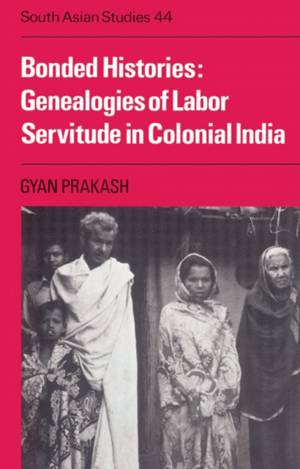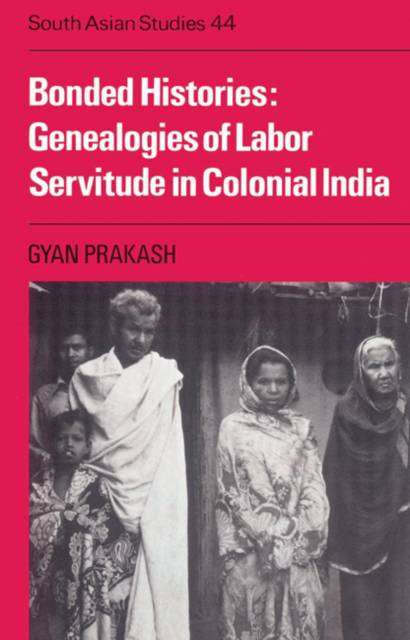
- Afhalen na 1 uur in een winkel met voorraad
- Gratis thuislevering in België vanaf € 30
- Ruim aanbod met 7 miljoen producten
- Afhalen na 1 uur in een winkel met voorraad
- Gratis thuislevering in België vanaf € 30
- Ruim aanbod met 7 miljoen producten
Zoeken
Omschrijving
To the modern world, the notions that freedom is an innate condition of human beings and that money possesses the power to bind people appear as natural facts. Bonded Histories traces the historical processes by which these notions became established as dominant discourses in India during colonial rule and continued into post-colonial India. Gyan Prakash locates the formulation of these discourses in the history of bonded labour in southern Bihar. He focuses on the emergence and subsequent transformation of the relationship of reciprocal power and dependence between landlords and labourers. The author explores the way in which these transformations were connected with broader shifts in the political economy of this part of the subcontinent; with the changing structures of agricultural production, land tenure and revenue demand; with local social hierarchies and the ideology of castes; and with Hindu cosmologies, spirit cults and their articulation in ritual practices.
Specificaties
Betrokkenen
- Auteur(s):
- Uitgeverij:
Inhoud
- Aantal bladzijden:
- 268
- Taal:
- Engels
- Reeks:
- Reeksnummer:
- nr. 44
Eigenschappen
- Productcode (EAN):
- 9780521526586
- Verschijningsdatum:
- 30/10/2003
- Uitvoering:
- Paperback
- Formaat:
- Trade paperback (VS)
- Afmetingen:
- 140 mm x 216 mm
- Gewicht:
- 344 g

Alleen bij Standaard Boekhandel
+ 187 punten op je klantenkaart van Standaard Boekhandel
Beoordelingen
We publiceren alleen reviews die voldoen aan de voorwaarden voor reviews. Bekijk onze voorwaarden voor reviews.











